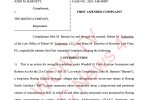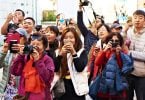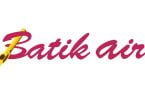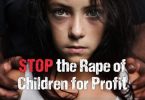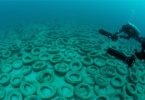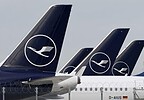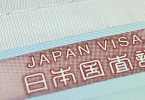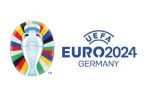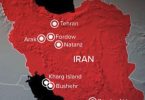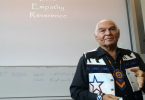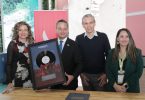Lies are like candies in a candy store – they come in various colors and sizes and offer different experiences. Some lies are motivated by money and greed, other lies are inspired by ego needs. Some people will lie to avoid punishment, others lie for the thrill of getting away with the falsehood, while others lie to cover up a previous lie.
Ndị mmadụ n'otu n'otu nwere ike ịgha ụgha ntakịrị ma ọ bụ ọtụtụ, dabere na amụma ha ga-esi na ya pụta. N'ụfọdụ ụlọ ọrụ ụgha na-adịghị mma (ya bụ, dọkịta na-edepụta ọgwụ nke o nwere mmasị ego na onye ọrịa na-ebute mmeghachi omume nfụkasị ahụ). N'ọnọdụ ndị ọzọ, ụgha bụ ihe ndọpụ uche (ya bụ, ndị isi ụlọ ọrụ na-elekwasị anya n'ịchụ ndị isi ụlọ ọrụ iji dọpụ uche na ibelata ahịa). A na-akpọ ụgha azụmahịa ugboro ugboro dị ka ọrịa ọrịa One Stop Shop ebe azụmahịa na-ekwu na ọ ga-egbo mkpa gị niile mana ọ na-enye obere arụmọrụ maka ọtụtụ n'ime ha.
Ebe nchekwa ụkpụrụ omume
Research by the Ethics Resource Center found that industries most likely to bend the truth were hospitality and food (34 percent of employees observed falsehoods); arts, entertainment and recreation (34 percent) and wholesalers (32 percent). In the hotel, travel and tourism industry, lies are used to shade the reality of the situation. Cruise ships lie about the safety and sanitation of their vessels and passengers get sick and die from a variety of viruses. The hotel industry lies to cover up a poor location, poor ventilation from an inadequate HVAC system or citations from the health department because of a roach-infested kitchen. The airline industry lies about the air quality onboard to cover up the reality of airborne distribution of viruses through the ventilation system and sickness caused by the pressurized cabins.
Eziokwu ma ọ bụ Dare na-enyocha ụlọ ọrụ njem nlegharị anya site n'ịchọ eziokwu wee nye ndụmọdụ na, ka anyị na-abanye na 2021, eziokwu na-aghọ ntọala maka ọrụ azụmahịa niile yana akụkụ dị mkpa nke mbọ ahịa na mmekọrịta ọha na eze.
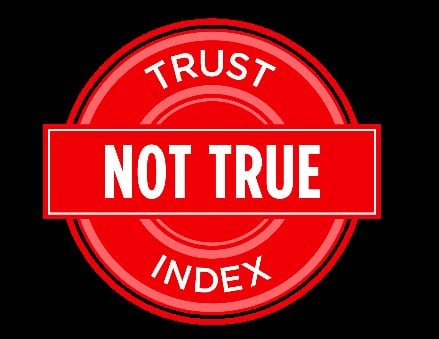
Why Does the Tourism Industry Shade the Truth?
We have arrived at a time when, no matter who is speaking, or what we are reading, we are questioning the information: fact or fiction. I have come to a point where I do not even trust recipes from MarthaStewart.com.
Inept leaders from both the public and private sectors have so polluted the global notion of truth that unless we are brain dead, it is prudent to trust no one, except, perhaps the motto of the United States, “In God We Trust.” According to Pew Research, only 20 percent of US adults trust the government in Washington, DC to “do the right thing” always or most of the time (September 14, 2020, pewresearch.org).
Substitute Truths
Research (2018) by Richard Edelman, (President and Chief Executive Officer of the public relations company) found that the loss of trust may be grounded in the reality that it is harder to determine what is and what is not true.

We can query as to whether there are there boundaries between fact, opinion and misinformation. When the US Counselor to President Donald Trump, Kellyanne Conway said, during a Meet the Press interview (January 22, 2017), in defense of the White House Press Secretary Sean Spicer’s false statement about the attendance numbers at Donald Trump’s inauguration as President of the United States, Conway responded that Spicer was giving, “alternative facts.”
David Bersoff, a Researcher with Edelman determined that democracy is based on a shared understanding of facts and information that can be used for negotiation and compromise, “When that goes away, the whole foundation of democracy gets shaken.” Thanks to Covid-19 and the missteps of global leadership, the world has become chaotic, riddled with uncertainty and when this dominates the landscape, authoritative power moves onto the stage.
The tourism industry, previously a central pillar in world economies, has ceased to exist in the form we knew it (as recently as 2019). Unfortunately, the industry, long susceptible to disasters, has not been able to create or find a path that leads to the rebuilding of consumer trust. Instead of providing facts and figures, consumers are fed lies based on faulty research or Magical Thinking, with the belief that the misinformation will sway the hearts, minds and credit cards of people, getting them back on planes, trains and into rental cars, anxious to make reservations for holiday and business travel.

It is not news that disasters (natural and man-made) have a negative impact on the number of tourists and the tourist experience. In the case of COVID-19 the disaster is both natural (a virus) and man-made (spread has not been controlled) leading to global economic and health care crises.
The tourism industry has survived previous catastrophes: the Indian Ocean tsunami killed more than 225,000 people in the region (December 26,2004), leading to a decline in tourism to the Maldives; the European airline industry lost approximately 2.5 billion Euros under the influence of the volcanic ash cloud generated by the Iceland volcanic eruption (2010). The 9/11 attacks in the United States (2001), impaired the trust of tourists and required a long-term recovery period that lasted almost four years. The 2008 financial crises reduced international tourism by 4 percent. However, with the arrival of COVID-19, and the absence of strong leadership and reliable information, travelers learned to doubt the safety and security of tourist destinations and attractions, prioritizing safety and security over a step into the unknown.
Nsogbu
Researchers define disasters as “a serious disruption of the functioning of a community or a society causing widespread human, material, economic or environmental losses which exceed the ability of the affected community or society to cope using its own resources.” The growing sense of insecurity caused by the pandemic means that the attractiveness of a tourist destination is largely determined by its acknowledgement of the virus and assurance of the destination’s safety and security. Attractions are important contributors to the success of a tourist destination; however, they are not enough to be a condition for success, because, “no safety no tourism.”
Political leaders, business executives, domestic and international media have alerted everyone on the planet to the risks associated with COVID-19, encouraging (if not forcing) isolation and quarantine, highlighting the dangers associated with groups and travel. These warnings, combined with economic devastation, created an atmosphere of fear that does not provide an environment for business or leisure travel, resulting in the almost total obliteration of the worldwide hospitality industry.
© Dr. Elinor Garely. Enwere ike ịmegharị akụkọ nwebiisinka a, gụnyere foto, na-enweghị ikike ederede sitere n'aka onye odee ya.
#mmegharị njem




